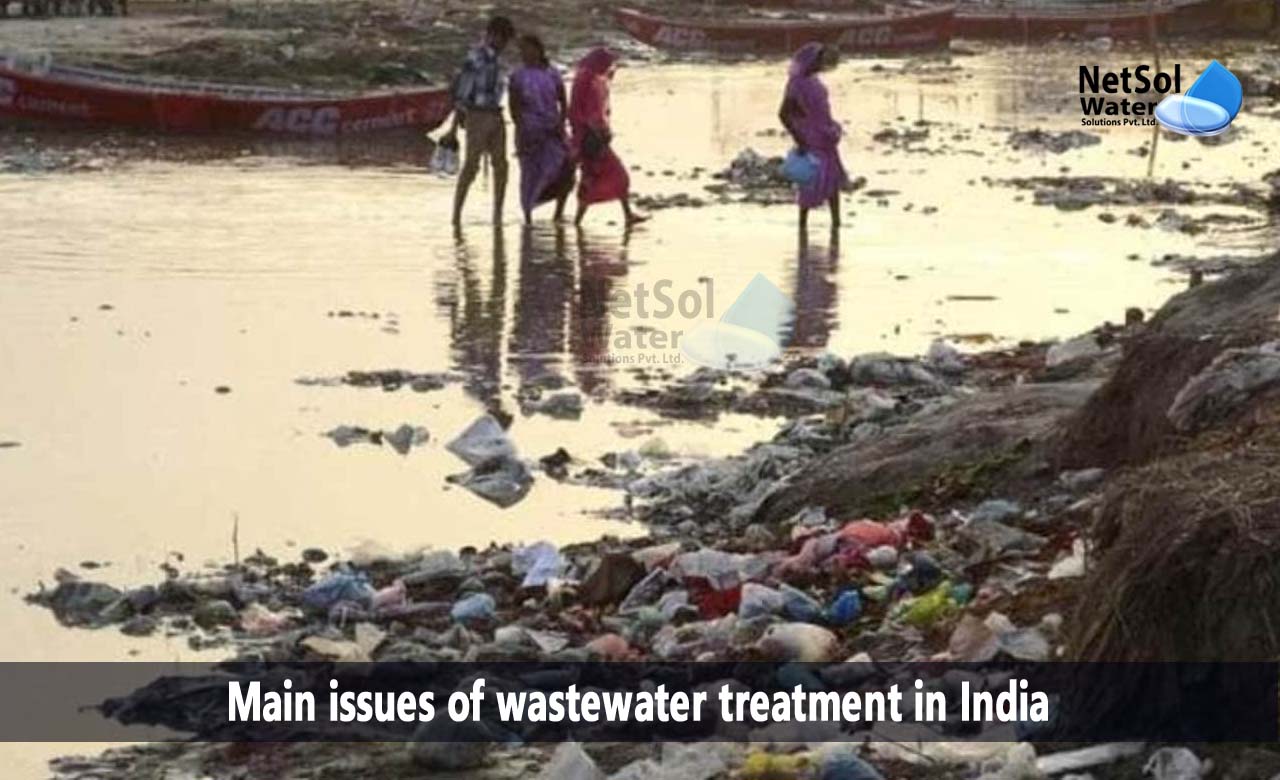Water purification is critically necessary due to the depletion of freshwater resources. Almost all countries struggle with water scarcity, which is a global issue caused by the depletion of water resources. However, because of its large population and escalating pollution, India faces serious water scarcity and clarity issues.
For a fast-rising industrial, agricultural, and home demand, there is insufficient water supply. The state of accessible water resources has only gotten worse as a result. Wastewater management is obviously a problem that cannot be disregarded.
What are the Main issues of wastewater treatment in India?
· Wastewater is not pre-treated
Actually, wastewater treatment is a methodical procedure that begins right at the source. For instance, a large society or complex that generates a lot of home or industrial waste is required, to have a sewage treatment plant (STP) system where wastewater is treated, initially before being deposited into a big facility.
This is crucial for industries that deal with industrial waste, especially those that deal with chemical waste. Before entering a wastewater treatment plant, the effluent must first be treated at the source.
· Urban and agricultural runoff
Urban runoff is one of the results of industrialization and population growth. This is the stormwater that doesn't seep into the ground but instead flows into storm drains. Because, the rainwater is not given a chance to soak into the earth, it evaporates, depleting the groundwater and leading to flooding. Additionally, it makes sure that wastewater from households and untreated water does not enter lakes and rivers.
· Runoff from agriculture and cities
Urban runoff is one of the results of population growth and industrialization. This is the stormwater that flows into storm drains as opposed to soaking into the ground. The rainwater's failure to soak into the earth, produces flooding and depletes the groundwater.
Additionally, it guarantees that household wastewater and untreated water do not enter lakes and rivers. In fact, many of the existing wastewater treatment facilities are not even operational. They either require urgent maintenance and repairs, or they never took off.
According to the data, around 70% of our water is still untreated. This is a very concerning number since the untreated water continues to contaminate other water sources, when it mixes with them. This untreated water is simply too much of a volume to ignore with such a vast population.
· Inability to commit further funds
The significant lack of infrastructure for wastewater treatment is not a coincidence. The reality is that there isn't enough political or popular will, to implement the necessary changes. There is still a glaring lack of effort in India to reflect the realization that wastewater management, must be a crucial component of water management (and hence, a country's infrastructure).
Even though there have been recent attempts to address wastewater management, actual investment is still quite low.
· Insufficient private partnerships
Wastewater treatment in India cannot only be the government's duty given the severity of the issue. The reality is that the government lacks the means to satisfy the enormous demand. Finding private-public cooperation is the obvious approach. But even these falls short of the necessary capacity.
We may benefit from better technology, specialized systems, and efficiency by enlisting, commercial collaboration in wastewater and sewage control. Of course, commercial partnerships will also inject much-needed financial support into this industry.
The other desired outcome is that it has a much wider scope. Smaller towns and villages frequently lack the resources necessary to build effective wastewater treatment facilities. Here, a private investment could be the answer. Private business owners can actually play a crucial role in monitoring and maintaining India's underperforming STP facilities.
Conclusion
In India, the combination of growing urbanization, industrialisation, and population has resulted, in a nearly uncontrollable wastewater issue. This is causing our water sources to become toxically contaminated. Since, wastewater treatment in India is simply too crucial to be disregarded, we must find answers to the problems that are growing.
What do we offer?
With the understanding of wastewater and water treatment techniques in India, a wide variety of wastewater treatment options which includes physical, chemical, and biological processes, are offered by Netsol Water.
Netsol combines cutting-edge technology with their years of experience to handle the most challenging, water treatment or wastewater treatment requirements of a wide range of clients, including small enterprises, corporations, and regional government agencies.



